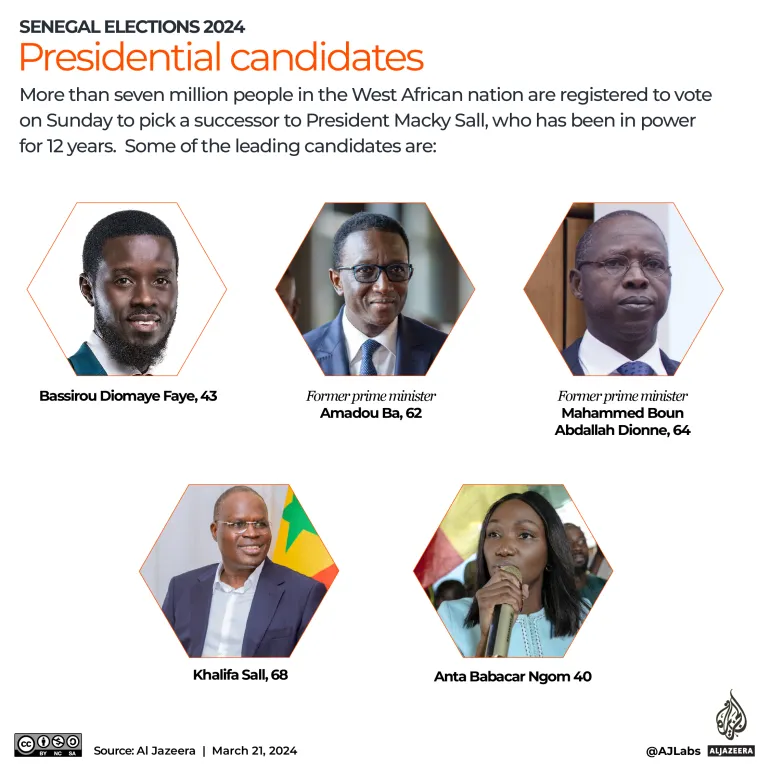Voting underway in Senegal
Senegalese waited in line to cast their votes on Sunday in a presidential election that is closely contested. This election follows months of uncertainty and instability that have challenged Senegal’s reputation as a stable democracy in a region plagued by coups.
President Macky Sall attempted to delay the Feb. 25 vote until the end of the year, which led to violent protests. Sall is unable to seek a third term due to the constitution. The election is happening during Ramadan, a holy month when Muslims fast from dawn until dusk.
Voters lined up early in the morning outside polling stations in Dakar, where roads were quiet. The elite police force was present to check voters’ cards and maintain security. Results are anticipated next week.
Ahead of the election, opposition leader Ousmane Sonko was released from prison, generating excitement and celebrations in Dakar. Sonko was disqualified from running due to a prior conviction, but he supports his ally Bassirou Diomaye Faye, who was also recently released from prison.
One voter, Khodia Ndiayes, chose Faye on the ballot to support Sonko. She expressed her desire for a new president to address the high cost of living, struggling economy, and inadequate education system.
Concerns over the economy weighed heavily on Senegalese voters, given high food and energy prices exacerbated by the conflict in Ukraine. Nearly one-third of young people in Senegal are unemployed, prompting many to seek opportunities abroad.
Senegal has remained stable amidst military takeovers in neighboring countries. This election will mark the fourth peaceful transfer of power since independence from France.
Despite some unrest and violence during the electoral process, analysts predict a runoff election as no candidate is expected to garner over 50% of the vote. Several prominent candidates, including Faye, Amadou Ba, Khalifa Sall, and Idrissa Seck, are vying for the presidency.
In the town of Fatick, lines formed outside polling stations with mostly women and elderly voters. The army ensured security outside the capital, and voters were marked with ink to prevent multiple voting. One voter, Fodé Ndour, expressed pride in participating in the democratic process.






















































